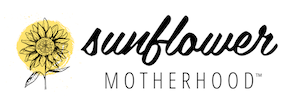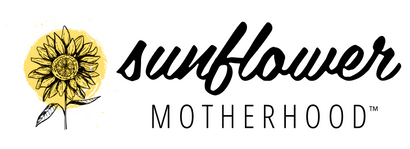A newborn or ababy bump sometimes feels like a magnet for commentary. All sorts of people — including strangers — want to talk to you.
From asking questions about the pregnant mom or new baby to sharing an observation to throwing out a piece of advice, there are some common remarks pregnant and new moms hear all the time that would be better off said a little bit differently.
A general rule of thumb is to avoid sharing strong opinions, unsolicited advice, and leading questions.
But what exactly does that look like? This blog provides several examples of what to say vs. what not to say so you can support the pregnant mom or new mom in your life without crossing any lines.
Keep reading to learn more!
#1 Commenting on the size of a pregnant mama’s baby bump
Don't Say: "You look huge!" or "You look tiny!"
Instead, try: "You look great! How are you doing?"
Of course, thebaby bump draws a lot of attention. But instead of commenting on the way a pregnant mom is carrying her baby, a general compliment is a safer bet. Comments about the size of her belly may make the mama feel uncomfortable, self-conscious, or irritated.
#2 Negative comments on what’s to come
Don't Say: "You think it's hard now! Wait till ______."
Instead, try: "It's such an adjustment. Hang in there, you're doing great."
"Wait till theterrible twos!" "Wait till you have another one!" "Wait till you hit sleep regression!"
The "Wait till _____" comments were one of the most discouraging parts of brand new motherhood for me. I can't even count how many times I heard it and how much of a gut punch it felt like on the already tough days.
When a person struggles, being told that it only gets worse is hard to hear. It's like saying "It's only going to get harder!" to someone on Mile One of their first marathon.
"Keep it up!" or "You got this!" are much more appropriate remarks. Even when intended to be relatable and honest, a warning of how much more difficult it gets isn't helpful or necessary. It's best to pull out your inner cheerleader when talking to an expecting or brand-new parent.
#3 “Hands-full” comments
Don't Say: "Wow, you've got your hands full!"
Instead, try: "Can I offer you a hand? You're doing a great job."
The "hands-full" comment has become a bit of a punchline in online mom communities. It is said to moms ALL the time, and the consensus is that it's annoying. It states the obvious, doesn't offer help, and is a bit awkward. If you feel inclined enough to make this comment, try adding an offering of help or a compliment.
#4 Unsolicited baby registry advice
Don't Say: "Don't register for _____. It's a total waste."
Instead Try: "We didn't use _____ much, but it's different for everyone!"
The two products that moms adamantly warned me to be uselessregistry items are ones I use multiple times a day.
And on the contrary, one of the items I was told is a must-have was something I never found a use for.
Every baby and every parent is different. Some products that feel like staples in one household are unnecessary in others, and vice versa. Instead of sharing your family's preference as the spoken word of truth, mention your experience and acknowledge that it might be different for them.
#5 Telling new or expecting parents what to do
Don't Say: "Get the epidural!" or "Go natural!"
Instead, try: "I will be thinking of you. You'll do great!"
In general, it's not smart to tell a new or expecting parent what to do when they haven't asked. It's also wise to withhold commenting on divisive topics without knowing how the parent feels.
Epidural or natural, daycare or nanny, private or public school — whatever the divide is, remember unsolicited advice is usually more for the giver than the receiver.
The parents may have strong feelings one way or the other, or may be unsure what to do and overwhelmed with all the suggestions. It's hard to hear your voice when people constantly give you their two cents.
Rather than sharing your thoughts on how you believe parents should approach childbirth or parenthood, say something general that is supportive or encouraging.
#6 Asking about breastfeeding
Don't Say: "Are you breastfeeding?"
Instead, try:"How's feeding going?"
Breastfeeding can be a very sensitive subject for a new mommy. Many moms plan to breastfeed but are unable to due to a variety of reasons outside of their control. Being asked about it could trigger feelings of sadness or loss. The question can also feel like an insinuation that breastfeeding is the right way to feed.
The "breastfed vs. bottlefed" mommy wars are hard to ignore and elicit feelings of guilt and shame for many mommies. For a mother who has made the choice not to breastfeed, this question might make her feel like she has to explain herself. A general question gives her the option to share what she's comfortable with surrounding an often delicate topic.
#7 Don’t assume how motherhood is going
Don't Say: "Isn't motherhood the best?"
Instead, try: "How is motherhood going for you?"
Leading questions are tricky. You never know how the mommy's day has been going or the state of her postpartum mental health.
Even though it's surely not the intention, a comment like this can make a struggling mama feel guilt and shame for having a hard time. Keeping it general with a touch of support is the safe way to go. She will likely be grateful to be asked how she's doing since most people ask how the baby is.
Want to support a new mom? Get them a new mom care package from Sunflower Motherhood
Words matter, but actions often speak louder. Instead of worrying about what to say — or what not to say — you can show a pregnant mom or new mom how much you care through thoughtful gestures. A new mom care package from Sunflower Motherhood is the perfect way to provide comfort, encouragement, and practical support during such a tender season.
Each package includes items chosen to make her feel seen, supported, and cared for. From soothingbath soaks that melt away stress topostpartum recovery essentials that ease her healing to mental wellness boosters that lift her spirits, these gifts go beyond surface-level support. They remind her that her well-being matters, too.
Whether you’re a partner, friend, or family member, sending a Sunflower Motherhood care package says, “I’m here for you” in the most thoughtful way. Explore our collectionof new mom care package items today, and give the new mom in your life the kind of love and care she truly deserves.







